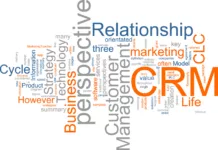Is there a business that wouldn’t benefit from CRM? Unless the business doesn’t rely on customers, then it needs CRM; customer relationship management.
While it sounds complicated, CRM is exactly as the name indicates. Managing customer relationships. What information do you need to manage customer relationships?
A detailed history of the customers interactions, good or bad. Their preferences, their reasons for doing business with you, even deeper information like family, job and other insights.
All this information about your customers can be analyzed to give you a clear picture of your customers motives and decision-making practices. It’s unlikely you’ll keep track of this information in a coiled notebook, which makes CRM programs invaluable as a business tool.
CRM programs range in price and capabilities. Free CRM is available in many forms, from open source to time-limited trials of paid versions. For businesses that are new to CRM, this offers a great opportunity to explore the functionality and performance of different offerings.
Forward Thinking Analytics
Understanding customer patterns and history does more than just give your business a full profile. CRM systems analyze the data to give you projections about what your company may be able to offer your customer in the future.
Having a detailed understanding of your customer allows your business to position itself to anticipate and meet the customer’s needs. Unlike traditional analytics, the data provided by a CRM looks forward; helping your business build a strong pipeline of leads and upcoming prospects.
Creating Solid Customer Service Standards
Free CRM programs offer plenty of insights to help your business streamline its customer satisfaction scores. In the highly competitive digital age, customer satisfaction is integral to successfully navigate your client base into a long-term relationship.
Studying current trends about how customers respond to various promotions, appreciation days and other service aspects is the best way to improve and adapt your service as well as discover what keeps existing customers returning.
Efficiency in Organizational Planning
Operational efficiency is another huge advantage when putting a free CRM to use. The data makes it possible to see which areas of your business can be automated, (thank-you emails after a visit). It also provides insights into where your advertising dollars are paying off.
Businesses that take advantage of the data from CRM programs show a positive return on investment. The information improves productivity, fine-tunes customer service and helps define shortfalls in operational efficiency.
Depending on the size of your business and the staff you have working for you, a free CRM open source program will give you full functionality, assuming you have technically versed staff to manage it.
The distinct advantage of open source is that your business has full access to all available capabilities. For a large company, this can be quite useful. For smaller companies, however, open source can be a little overwhelming.
Trial offers of full CRM programs allow for a free test period, so your business can test the usefulness of the program before committing to a purchase. This is good for narrowing down which features are suitable to assist you in managing your customer relationships.
Many paid CRM options have various price ranges that feature various functions. The free CRM trial period is the best way to make sure you only pay for the features you need, to better grow your business.








